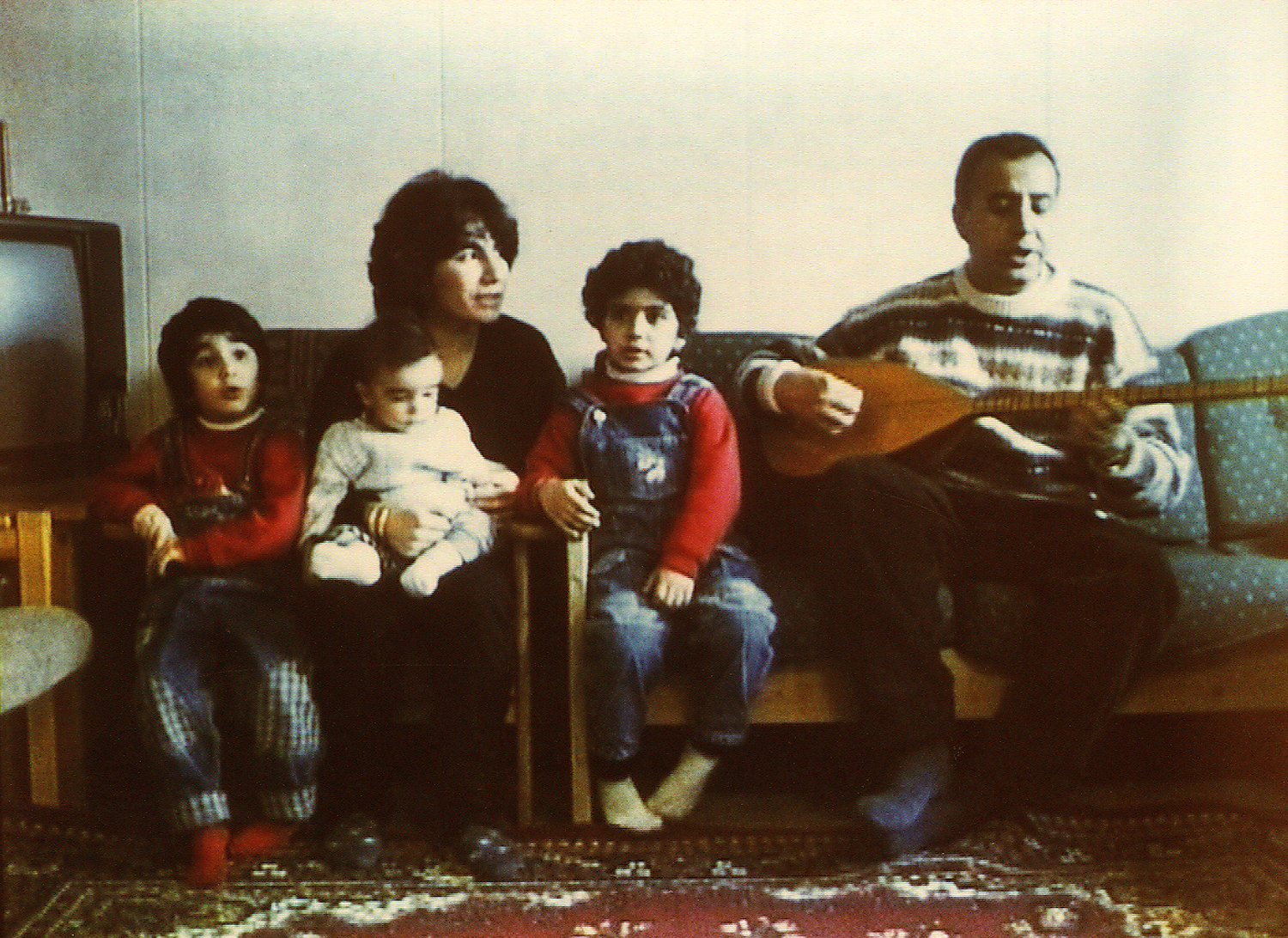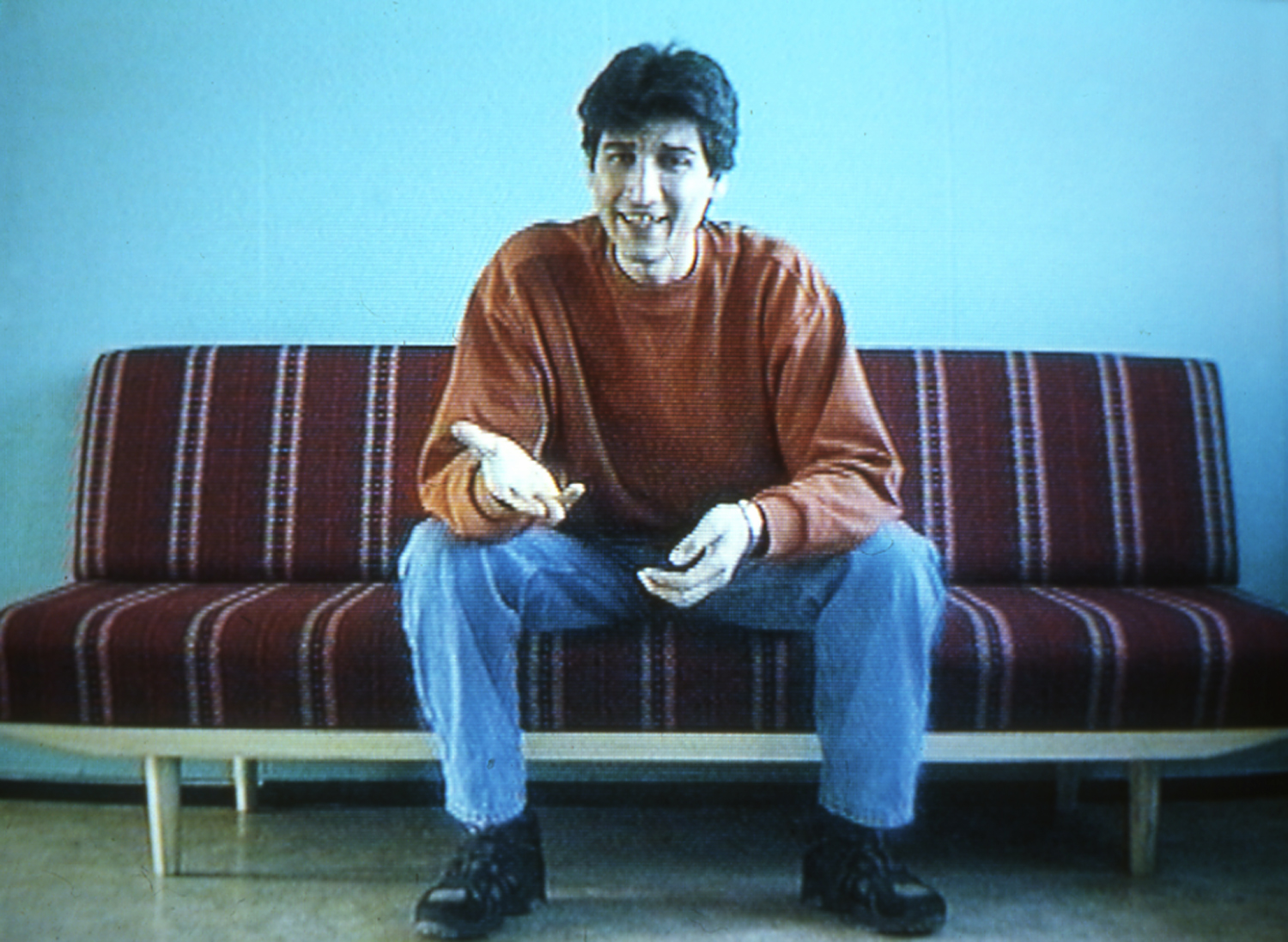Refugee Talks
1998, Audio & video installation
DV-Cam/ DVD, 33 min, (projection size 195 x 250 cm)
Refugee Talks consists of nine sequences, each featuring one or several persons performing a song. The protagonists are all refugees from different countries who lived in the same reception center in Oslo during the winter of 1998. Each of them chose a song that was relevant to their own lifes, and to the film they appear in. The work is shot at various locations within the reception center: in the common rooms or the family rooms.
The title is taken from Bertolt Brecht’s Flüchtlingsgespräche (written in exile 1940-41).
Lange took her video camera to a reception centre for refugees in Norway. Awaiting confirmation or denial of their residency applications, the refugees 'speak' this state of 'becoming' through the medium of music. Exhibited at life-size scale, Refugee Talks asks the viewer to listen directly to these contemporary psalms and to reflect on the emotions and experiences being communicated. As they face the singing figures, language becomes less important than the nuances of expression. Viewers recognise the pubescent glee of the girls imitating their pop idols. They recognise themselves in the universal intimacy of the family portrait: a woman smiles as her children watch their father singing.
Refugee Talks is a work that emerges directly from an engaged humanist commitment. In acknowledging the humanity of the refugees, the viewer comes to an understanding that spaces once designated as separate and different – political space, geographic space, cultural space – can possibly be transcended through music and song. This is the promise of artistic space. But, of course, such a promise can be betrayed and this possibility underlies Andrea Lange's work. It is what gives the work its acidic resonance. For the refugees, exile is not merely nostalgia nor simply existential. It is the present and the future. These are people waiting, their very civilian and physical security dependent on bureaucratic will and the see-saw of European popular opinion.
What viewers are being presented with in Refugee Talks is, then, also a kind of audition, an attempt by the refugees to win them over and to convince them of their humanity. These people-in-waiting, not yet citizens of democracy, possibly never to be admitted to 'citizenship', are communicating in song the very act of accounting for oneself. The viewers' initial identification is undermined by the vertigo of understanding that both their gaze, and more crucially, their judgement, emerge from privilege.
Christos Tsiolkas
Extract from catalouge text "Remembrance + the moving image", Australian Centre for the Moving Image Read full text
(NB! password needed: sevideo)



